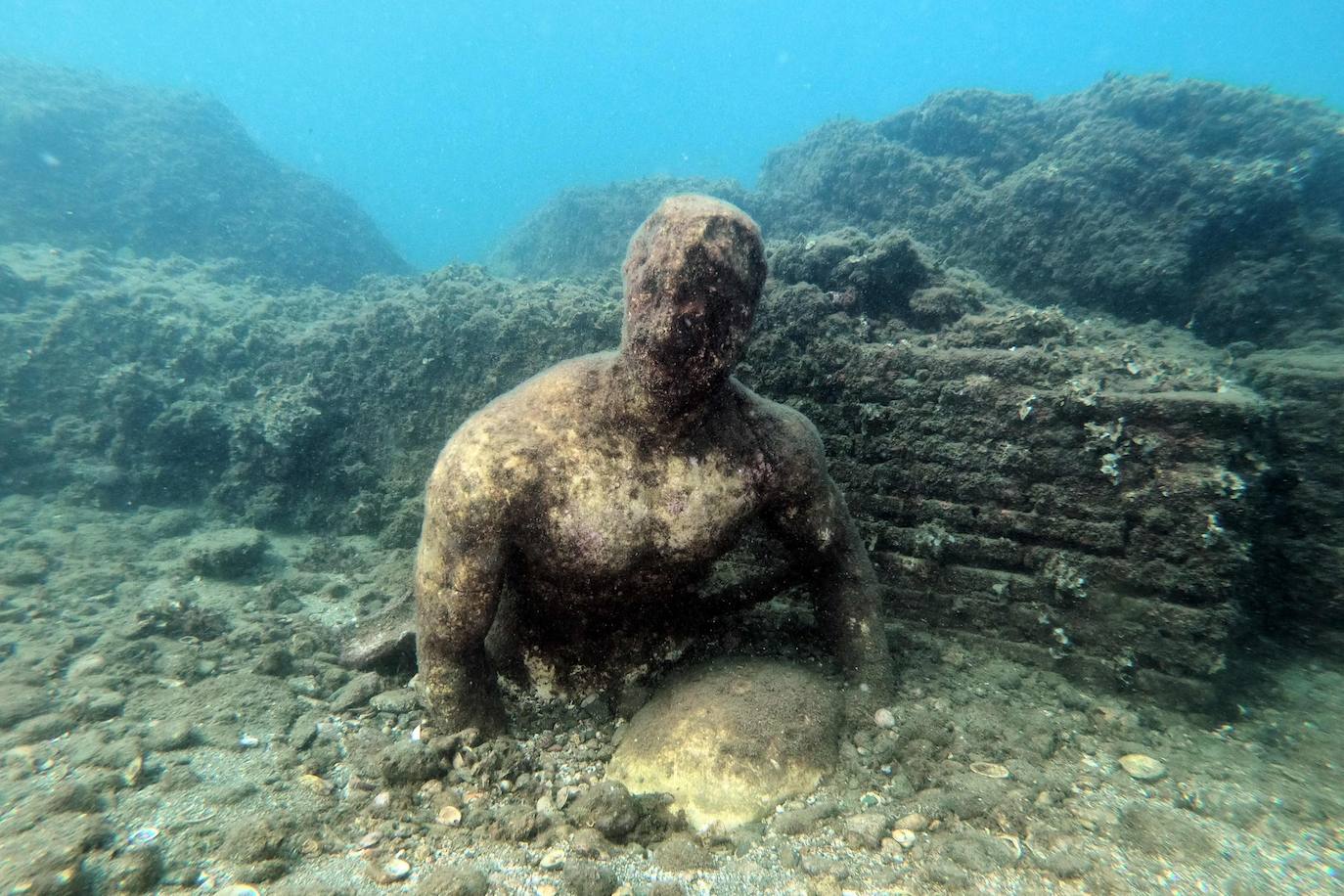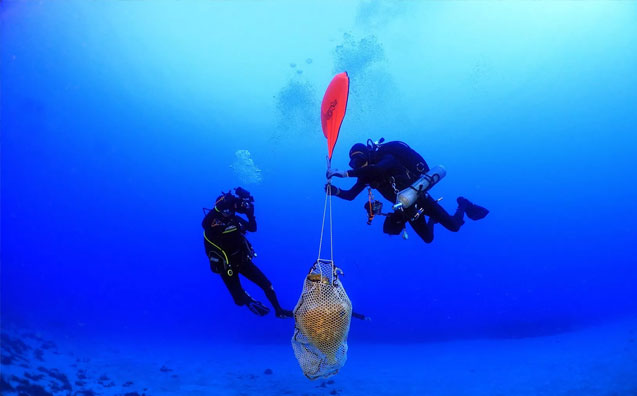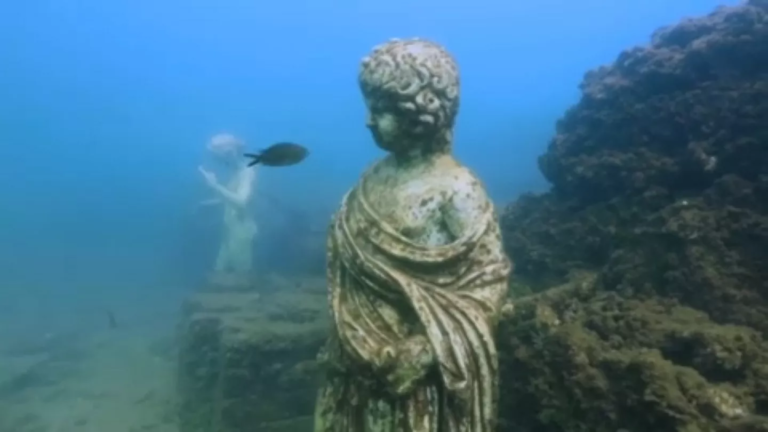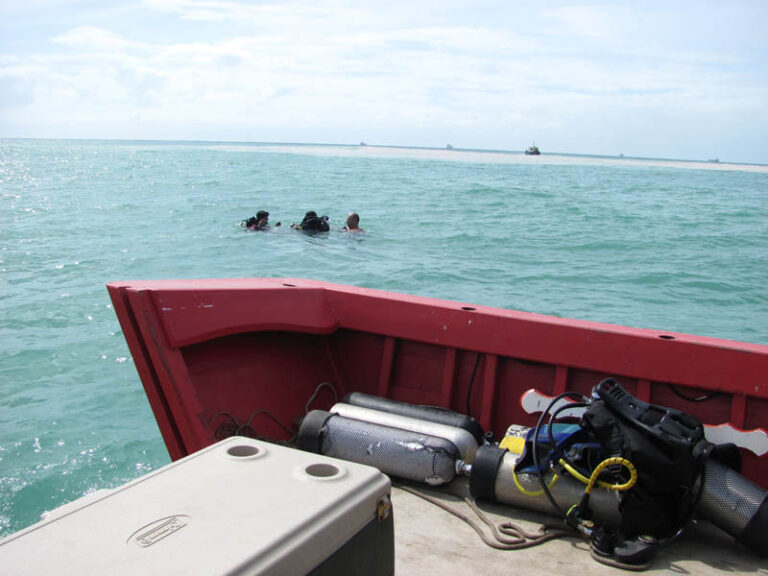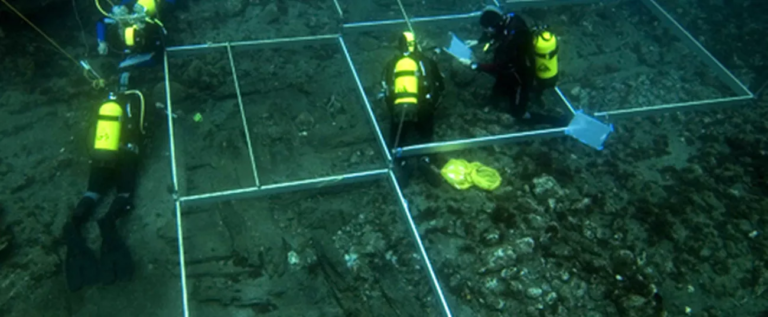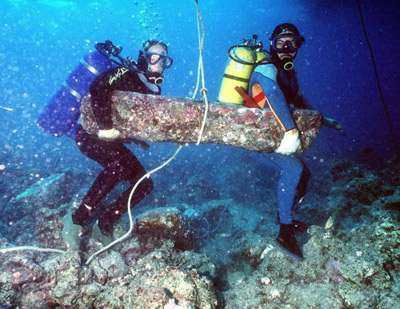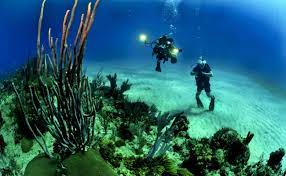Recreational Diving and Archaeology: Exploring Submerged Secrets
Recreational diving is a widely popular activity that allows individuals to explore the fascinating underwater realm. It encompasses a range of activities, from leisurely diving in tropical waters to more adventurous and specialized forms of diving. As more people become interested in the wonders of the underwater world, recreational diving continues to gain popularity.
Underwater archaeology is an intriguing field that combines the thrill of diving with the study of historical artifacts and sites beneath the water’s surface. It involves the exploration and documentation of submerged historical sites, shipwrecks, and artifacts to uncover submerged secrets. The allure of discovering lost treasures and unraveling the mysteries of the past attracts both professional archaeologists and recreational divers alike.
The significance of exploring submerged secrets through recreational diving cannot be overstated. These underwater sites and artifacts hold immense historical and cultural value. They provide valuable insights into past civilizations and shed light on lost stories and forgotten cultures. By exploring these submerged secrets, recreational divers have the opportunity to contribute to the preservation and understanding of our collective history.
In the following sections, we will delve deeper into the historical importance of underwater archaeology, the challenges faced by recreational divers, the techniques and tools used in this field, popular diving destinations for archaeology enthusiasts, and the future of recreational diving and archaeology. Through this exploration, we hope to inspire individuals to immerse themselves in the captivating world of recreational diving and contribute to the preservation and exploration of underwater archaeological sites.
Table of Contents
The Historical Importance of Underwater Archaeology
Underwater archaeology holds significant historical importance as it allows us to unravel secrets that have been hidden beneath the depths for centuries. By exploring submerged sites, archaeologists can uncover valuable artifacts and gain insights into past civilizations. This field of study has led to remarkable discoveries that have reshaped our understanding of human history.
Throughout history, underwater archaeology has revealed a plethora of significant finds. For instance, the discovery of the Antikythera mechanism, an ancient Greek analogue computer, shed light on advanced technology from over 2,000 years ago. The sinking of the Titanic revealed the grandeur and tragedy of the early 20th century. These discoveries not only captivate the public but also offer valuable information about the past.
Recreational divers also play a crucial role in underwater archaeology. Their passion for adventure and exploration allows them to assist in uncovering submerged secrets. By documenting their findings and reporting archaeological sites, recreational divers contribute to the preservation and understanding of our shared history. They can bring attention to potential archaeological sites that might otherwise remain undiscovered.
The collaboration between professional archaeologists and recreational divers has led to remarkable discoveries that otherwise may have gone unnoticed. With their knowledge of local dive sites and dedication to preserving underwater treasures, recreational divers add an extra layer of expertise to the field of underwater archaeology. By involving enthusiasts, a greater number of sites can be explored and documented, advancing our knowledge and understanding of our past.
In conclusion, underwater archaeology holds great historical importance as it unearths hidden secrets and provides valuable insights into past civilizations. Through the collaboration of professional archaeologists and recreational divers, these submerged treasures can be documented and preserved for future generations. It is vital to recognize the role that recreational divers play in this field and encourage their responsible and ethical exploration of underwater archaeological sites.
Exploring Hidden Treasures: Diving into the Past
Recreational diving offers an unparalleled opportunity to embark on an extraordinary adventure into the past, exploring underwater archaeological sites and uncovering hidden treasures. The excitement of descending into the depths and discovering remnants of ancient civilizations is a thrill like no other. It is an opportunity to witness history firsthand and witness the stories that lie beneath the waves.
However, recreational divers face numerous challenges when it comes to accessing and documenting these incredible sites. The depths can be daunting, and the logistics of reaching distant locations can be complex. Additionally, preserving the integrity of these historical sites is of utmost importance. Each artifact, each piece of history, holds significant value and must be treated with the utmost care and respect.
Preserving historical artifacts found during recreational dives is crucial for understanding and reconstructing the past. These artifacts provide valuable insights into ancient civilizations, shedding light on their daily lives, beliefs, and practices. They are windows into history, and their preservation ensures that future generations can learn from the past and appreciate the richness of our shared heritage.
To explore these underwater archaeological sites, recreational divers must utilize a variety of techniques and tools. Underwater archaeologists employ specialized equipment, such as underwater cameras, magnetometers, and 3D mapping technologies, to document and analyze these sites. Recreational divers can adapt and learn from these techniques, applying them responsibly to contribute to the field of underwater archaeology.
In the pursuit of exploring submerged secrets, responsible diving practices are essential. Divers must be aware of the impact they can have on these delicate ecosystems and archaeological sites. By adhering to established guidelines, such as avoiding contact with fragile artifacts and reporting any discoveries to the appropriate authorities, recreational divers can help safeguard these historical treasures for future generations.
Overall, recreational diving offers a unique opportunity to delve into the past, exploring hidden treasures beneath the waves. The excitement and adventure of these underwater archaeological sites captivate the imagination, while understanding the challenges faced and the importance of responsible diving practices ensures the preservation of historical artifacts. By venturing into the depths with curiosity and respect, individuals can actively contribute to the field of underwater archaeology and join the ranks of those unlocking the secrets of our submerged past.
Techniques and Tools for Underwater Archaeology
Underwater archaeology is a complex and fascinating field that requires specialized techniques and tools to explore and document submerged sites. Underwater archaeologists utilize various methods to conduct their research and preserve historical artifacts. These techniques can also be adapted for recreational divers who have an interest in exploring submerged secrets.
One of the fundamental techniques used by underwater archaeologists is photography. High-resolution cameras and underwater housing are essential tools for capturing detailed images of artifacts and archaeological sites. These photographs serve as valuable documentation and can be used for further analysis and research.
Another important technique used in underwater archaeology is mapping and surveying. This involves creating detailed maps of the underwater site, recording the spatial distribution of artifacts, and documenting the archaeological context. Advanced sonar systems, such as side-scan and multibeam sonar, are used to create accurate maps of the seafloor and identify potential archaeological sites.
Excavation is a crucial technique in uncovering and retrieving artifacts from underwater sites. Underwater archaeologists use specialized equipment, such as airlifting systems and underwater suction pumps, to carefully excavate and recover artifacts while minimizing disturbance to the surrounding environment.
In addition to these techniques, underwater archaeologists rely on diving equipment to safely explore and study submerged sites. These include scuba gear for breathing underwater, underwater lights for visibility, and underwater communication devices for effective communication between divers.
For recreational divers interested in participating in underwater archaeology, it is crucial to prioritize responsible diving practices to ensure the preservation of archaeological sites. This includes adhering to coded dive tables to avoid damaging delicate artifacts, maintaining proper buoyancy control to prevent accidental contact with underwater features, and following local regulations and guidelines for diving at archaeological sites.
By adapting the techniques and tools used by underwater archaeologists, recreational divers can contribute to the field and help uncover submerged secrets. Responsible diving practices are essential to protect the integrity of archaeological sites and preserve historical artifacts for future generations. So, if you are an adventure seeker with a passion for history, consider exploring the world of recreational diving and contributing to the exciting field of underwater archaeology.
Diving Destinations for Archaeology Enthusiasts
When it comes to diving destinations for archaeology enthusiasts, there are several popular locations that are known for their underwater archaeological sites. Exploring these sites not only offers a thrilling diving experience but also provides an opportunity to uncover historical treasures that have been submerged for centuries.
One such destination is Egypt, home to the famous city of Alexandria. The underwater ruins of Alexandria have attracted divers from all over the world who are eager to witness the remnants of a once-great civilization. These ruins, including ancient temples, palaces, and even remnants of Cleopatra’s royal palace, tell stories of a rich and vibrant past.
Another fascinating diving destination is Greece, known for its rich history and sunken shipwrecks. For centuries, Greece has been a hub of maritime trade, and as a result, there are numerous shipwrecks scattered along its coastline. These wrecks offer a glimpse into the daily lives of ancient sailors and have provided archaeologists with valuable insights into ancient seafaring.
Heading over to the Caribbean, we find the Spanish Main. This region was once a hotspot for pirates and privateers, who looted countless ships loaded with treasures. Today, these wrecks serve as a reminder of this exciting era in history. Popular diving spots such as the Shipwreck Alley in the Bahamas or the Cayman Islands offer excellent opportunities to explore these underwater time capsules.
It is important to note that diving at these archaeological sites often entails strict regulations and restrictions to ensure their preservation. Permits are required, and divers are expected to follow ethical practices, such as not disturbing or removing artifacts. This ensures that future generations of archaeology enthusiasts can also explore and learn from these historical sites.
As an archaeology enthusiast, choosing these diving destinations allows you to immerse yourself in the rich history of civilizations long gone. By exploring these underwater archaeological sites, you have the opportunity to witness firsthand the historical significance and marvel at the remnants of ancient societies. So, grab your diving gear, dive into the depths, and unlock the secrets concealed beneath the surface of the sea.
The Future of Recreational Diving and Archaeology
As recreational diving continues to gain popularity, its potential for contributing to the field of underwater archaeology is becoming increasingly evident. Through recreational diving, there is a unique opportunity to explore uncharted territories and uncover hidden secrets beneath the surface of the ocean. With advancements in technology, the future of recreational diving holds immense possibilities for discovering new archaeological sites and expanding our understanding of the past.
One of the exciting prospects of recreational diving is the potential for future discoveries. As more individuals participate in this form of diving, there is a greater chance of stumbling upon untouched underwater archaeological sites. These sites, untouched by professional archaeologists, can provide valuable insights into ancient civilizations and shed light on historical events. The enthusiastic exploration of recreational divers can lead to serendipitous findings, making every dive an adventure filled with the anticipation of uncovering something extraordinary.
Advancements in technology also play a crucial role in the future of recreational diving and archaeology. Tools such as underwater drones, high-resolution sonar systems, and underwater cameras have revolutionized the way we explore and document underwater sites. These technological advancements enable recreational divers to capture detailed images, maps, and videos of archaeological sites, contributing to their preservation and further research. With each new technological innovation, the potential for recording and analyzing underwater artifacts only continues to grow.
It is essential to encourage individuals to participate in responsible and ethical recreational diving practices. By emphasizing the importance of preserving underwater archaeological sites, divers can actively contribute to the field while minimizing any negative impact on the sites and their fragile ecosystems. Promoting responsible diving practices, such as respecting marine life and avoiding physical contact with artifacts, ensures the long-term preservation of these underwater treasures for future generations. Through education and awareness, recreational divers can make a significant difference in the preservation and documentation of submerged secrets.
In conclusion, the future of recreational diving holds immense promise for the field of underwater archaeology. The potential for future discoveries, combined with advancements in technology, opens up new possibilities for exploration and research. By participating in responsible and ethical recreational diving, individuals can actively contribute to the preservation and documentation of underwater archaeological sites. As we dive into the future, let us continue to explore the depths, uncovering the submerged secrets that reveal the fascinating history of our past civilizations.
Conclusion
In conclusion, recreational diving plays a crucial role in the field of underwater archaeology. The exploration of submerged secrets not only offers excitement and adventure but also holds great historical importance. By venturing into the depths, divers have the opportunity to contribute to the discovery of hidden treasures and uncover the mysteries of the past.
It is essential to emphasize the significance of preserving historical artifacts. These artifacts serve as tangible links to our ancestors and provide valuable insights into our history. As recreational divers, we have a responsibility to handle these artifacts with care and respect, ensuring their preservation for future generations.
Recreational diving opens doors to a world of wonder and allows individuals to embark on extraordinary experiences. By exploring the underwater archaeological sites, enthusiasts can witness firsthand the remnants of ancient civilizations. This not only fuels curiosity but also fosters a deeper appreciation for the importance of preserving these sites.
As technology advances, there is immense potential for future discoveries through recreational diving. Modern tools enable us to explore deeper and more inaccessible areas, uncovering new secrets that have remained hidden for centuries. It is important to stay updated with the latest advancements and adapt responsible diving practices to ensure the preservation of archaeological sites.
In conclusion, I encourage individuals to dive into the world of recreational diving and contribute to the field of underwater archaeology. By participating responsibly and ethically, we can help uncover submerged secrets, preserve historical artifacts, and contribute to the knowledge of our past. Let us continue to explore and celebrate the wonders of recreational diving and its role in uncovering the mysteries of the underwater world.

